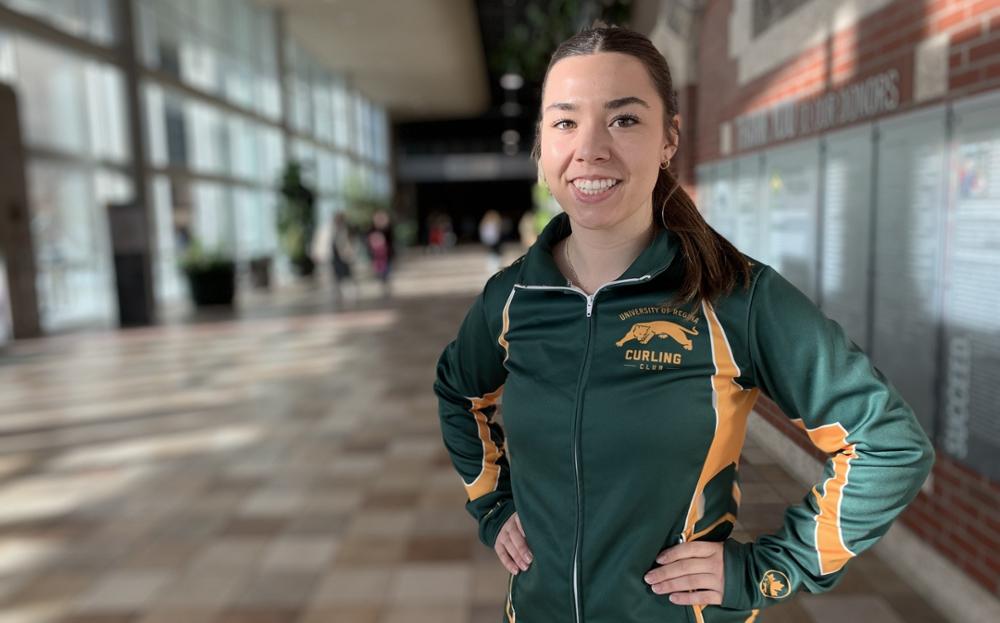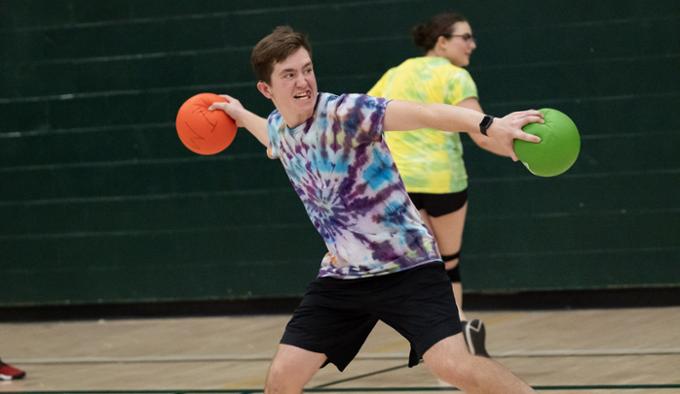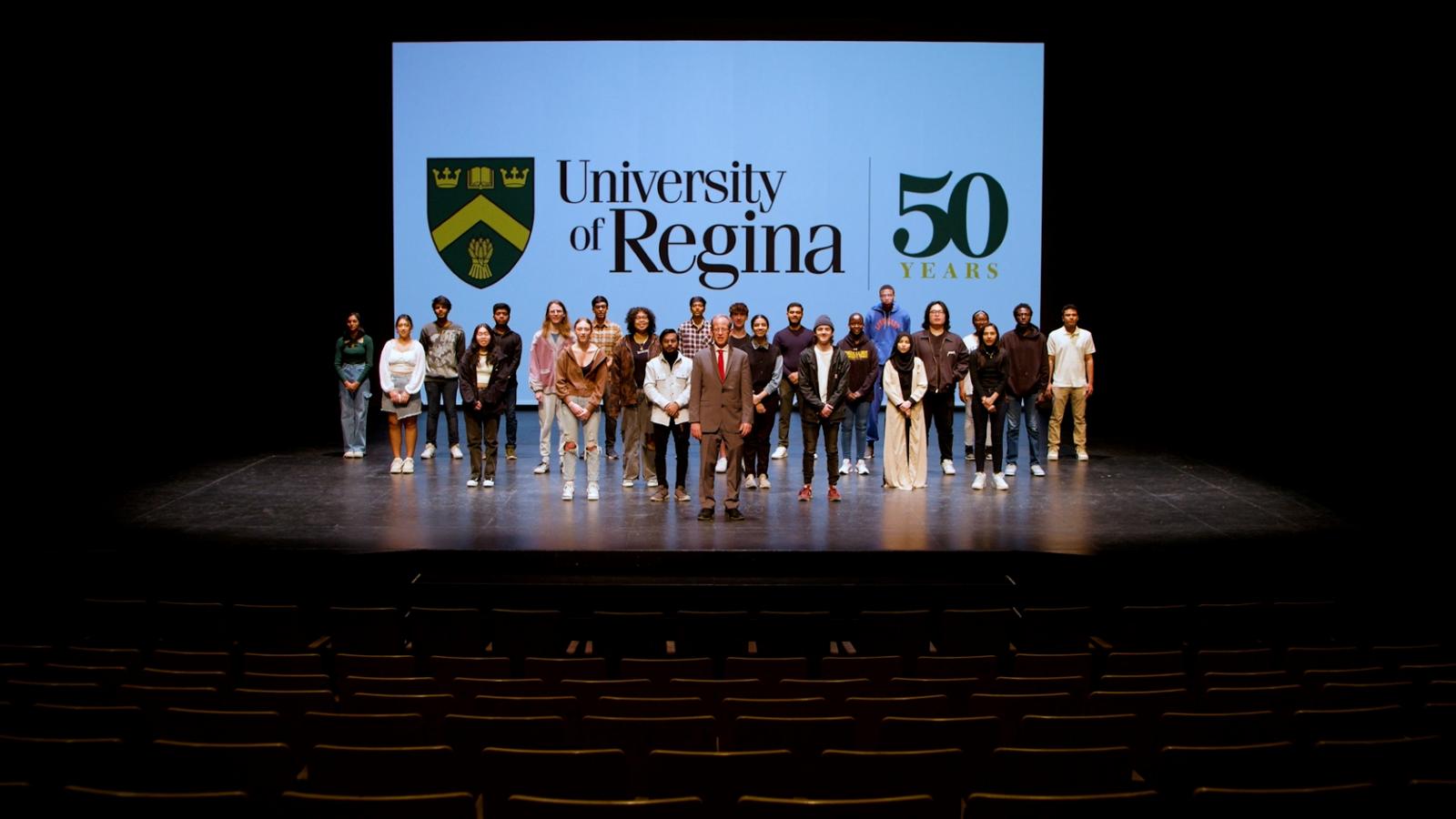New to the University? Looking for something to do between classes and study time? Why not get involved in campus sports? It doesn’t matter your athletic capabilities, there’s a host of sporting opportunities available through Varsity Clubs sport or Rec Sports in the Faculty of Kinesiology & Health Studies.
Rec Sports or Varsity Club sports – which one is right for you?
“Students should consider getting involved in a Varsity Club if they love a sport and want to play it at an elite level,” says Alison Fisher, Coordinator of Student and Youth Programs in the Faculty of Kinesiology and Health Studies. “This is a great way to continue to play a sport they love at a university level. Rec Sports allows them to play the sport they love against their fellow U of R students, but varsity clubs allows them to play against different schools across the country.”
I would recommend that U of R students get involved in Varsity Clubs sport because of the community and friendships it brings. It also allows students to work on essential skills – leadership, teamwork, and accountability – in a fun environment. — Chantel Hoag, Second, U of R Women’s Curling team.
Varsity Club sports
Chantel Hoag is a third-year Kinesiology and Health Studies student pursuing a pre-professional program. She’s also one of Saskatchewan’s best young curlers and has competed for the past eight years on a national level and was a Team Canada member in 2019. Hoag plays second for the U of R women’s travelling curling team and eagerly endorses Varsity Club sports.

“I would recommend that U of R students get involved in Varsity Clubs sport because of the community and friendships it brings,” Hoag says. “It also allows students to work on essential skills – leadership, teamwork, and accountability – in a fun environment.”
Varsity clubs are self-funded teams that represent the University of Regina on a provincial, national, and even international level. Most of the teams do not compete at the U Sports level; however, they do have their own university national championships. The biggest difference is that the coaches are volunteers – (some are paid a small stipend). The teams fund their own competitions, travel, and practices with some support from the Faculty of Kinesiology and Health Studies and the Varsity Club Fund.
Study and play elite sports at the same time
Hoag says that her decision to attend the U of R was, in large part, because of the varsity curling club that would allow her to compete at a highest level (U Sports) while earning her post-secondary degree. The U of R team is highly competitive this year and the team’s goals remain lofty.
“After losing the national final at the 2022 World University Games qualifier, our team has the goal to secure our spot as one of the two western university representatives this year and to have a strong showing on the national stage,” says Hoag.

The Varsity Club sports program is designed to promote and develop the interests and skills of students in sport and recreation. There’s a wide variety of sports to get into. They can be highly competitive, instructional, recreational or strictly a social sport that brings people together. Varsity Clubs include curling, dance team, rugby, women’s softball, ultimate, women’s flag football, golf, and ringette.
“Women’s Flag Football is a newer club and has become quite popular,” says Fisher. “Ringette is new this year with lots of interest. So are our established sports – golf, dance, softball, rugby, and curling. I think if you want to play a competitive sport but don’t have one you love, and you’re athletic, I think ultimate is a great fit. Lots of people aren’t familiar with the sport and once they start playing they love it.”
Recreational sport
If you’re unlikely to compete for a national title and just want to get some exercise and have some fun, Rec Sports is for you. There’s a host of coed recreational athletic options such as basketball, dodgeball, badminton, cricket, hockey, and more.
Combining academics and athletics
No matter what sport or level of competition you choose, Hoag offers some advice about combining sport with academics, especially if you are playing a more competitive brand of sport that requires numerous practices and workouts each week.
For more information on Varsity Clubs sport, click here. For more information or to register for Rec Sports, click here.
“Time management is crucial as a student-athlete, especially when you’re on the road competing many weekends,” says Hoag. “The most difficult aspect of balancing sport and study is understanding when the time is to be focused on the competition and your athletic performance, and when to set time aside to focus on academics.”
Banner photo credit: Tiffany Scotomi
About the University of Regina
2024 marks our 50th anniversary as an independent University (although our roots as Regina College date back more than a century!). As we celebrate our past, we work towards a future that is as limitless as the prairie horizon. We support the health and well-being of our 16,700 students and provide them with hands-on learning opportunities to develop career-ready graduates. Our research enterprise has grown to include 21 research centres and 12 Canada Research Chairs and brings in more than $51.2 million in funding annually. Our campuses are on Treaties 4 and 6 - the territories of the nêhiyawak, Anihšināpēk, Dakota, Lakota, and Nakoda peoples, and the homeland of the Michif/Métis nation. We seek to grow our relationships with Indigenous communities to build a more inclusive future.
Let’s go far, together.




